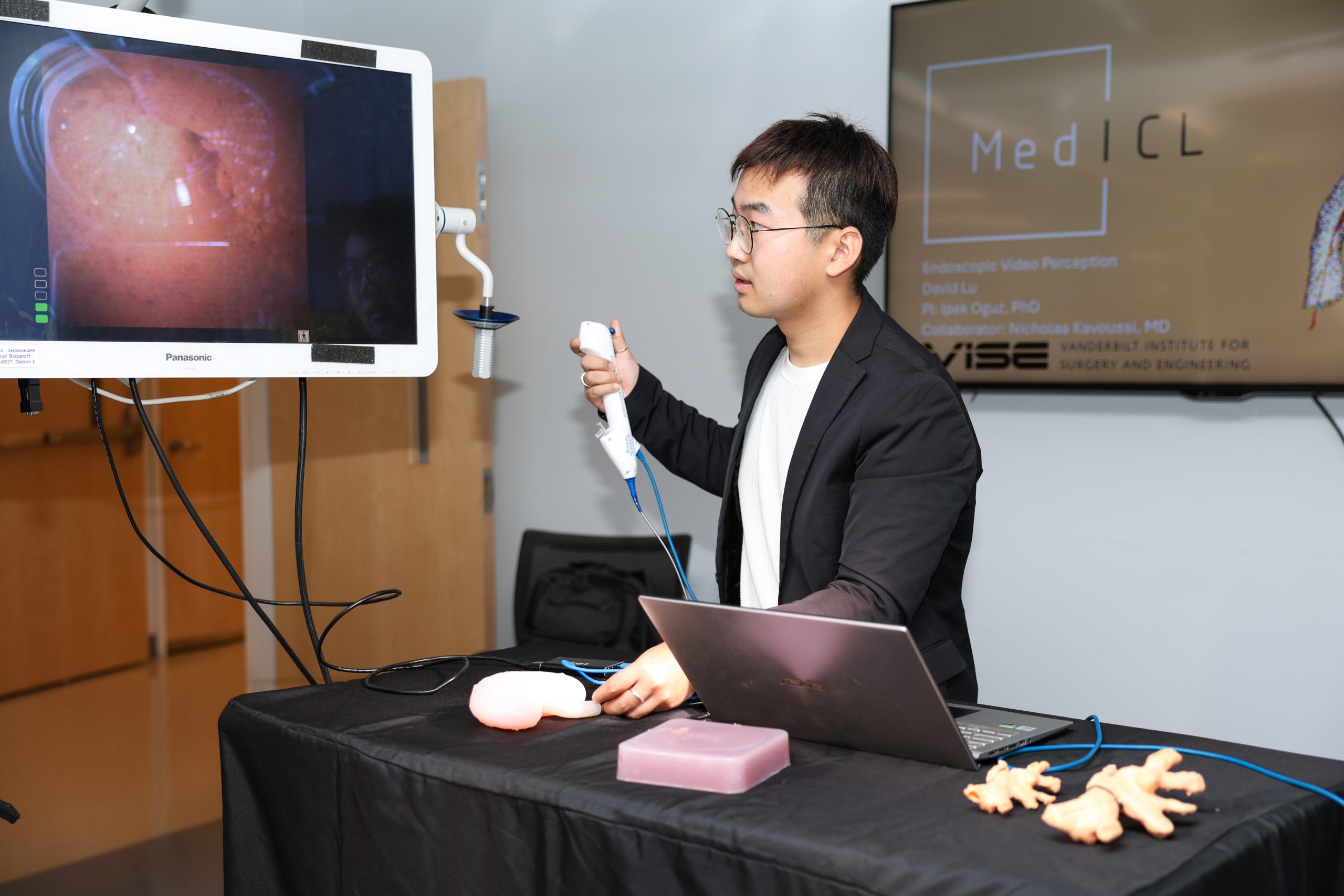
Daiwei Lu, a third-year Ph.D. student in computer science at Vanderbilt, has received a grant from the National Institutes of Health for a study that aims to create computer vision and machine learning models to improve endoscopic treatment of kidney stones.
Each year, over 100,000 patients require minimally invasive surgery for kidney stone disease in the United States and approximately 25% require a repeat surgery. Visual impairments from debris and fluid during operation can result in increased difficulty tracking kidney stones during the operation.

Through use of the NIH Predoctoral Individual National Research Service Award (F31), which is $49,000 a year over three years, Lu will conduct research intended to help surgeons see better during these endoscopic kidney surgeries. He proposes to achieve this objective by developing an automatic, real-time method for quantifying visual impairments and associate impairments with surgical outcomes; and developing models for the virtual removal of visual impairments during surgery.
“Success in visual impairment removal could decrease the frequency of residual fragments and reduce the risk of repeat stone surgeries,” said Lu, who is a member of the Vanderbilt Institute for Surgery and Engineering (VISE). “It could also lead to more efficient stone treatment, reducing operative time and decreasing the risk of injury to the collecting system. As these models would require only software integration to deploy in real-time on current endoscopic surgical cameras, all existing endoscopic surgical systems could in principle immediately benefit from the results of this project.”
Nick Kavoussi, assistant professor in the Department of Urology at Vanderbilt University Medical Center and a collaborator with Lu, said the research is beneficial to surgeons and patients.
“Kidney stones are very common and many patients who have a stone event will require a surgery for treatment,” said Kavoussi, who is also part of VISE. “Despite this, residual stone fragments are high after surgery. This project will enable surgeons to see more clearly during endoscopic stone surgery and hopefully improve outcomes for patients.”
Lu was an undergraduate student at Vanderbilt, and his work has focused on using computer vision to improve minimally invasive kidney surgery. He has explored the use of detection models for kidney stones and upper tract urothelial carcinoma, outcomes prediction for endoscopic kidney surgeries, as well as work toward a real-time navigation system for surgeons.